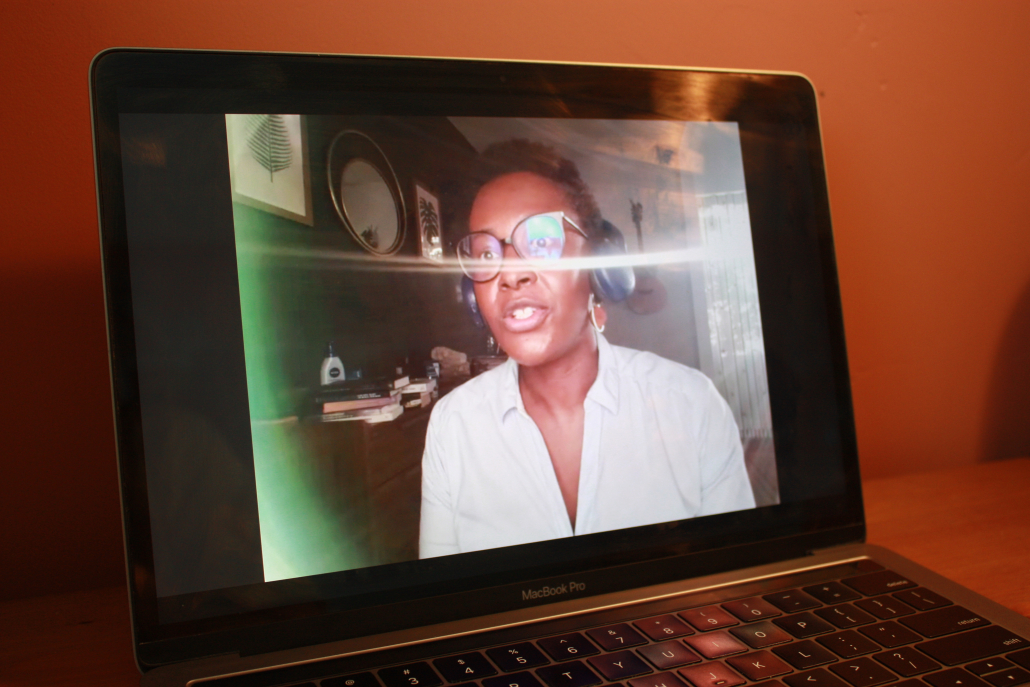‘Black Lives Matter Beyond Borders’ series ventures around global injustices

As protests against police brutality and racial injustice swept the streets around the world, Edwin Hill, associate professor of both French and Italian and American Studies and Ethnicity, was motivated to redesign his class into a space in which it would spread awareness of racial injustice as a global issue.
To do so, Hill created the “Black Lives Matter Beyond Borders” lecture series — three webinars focused on discussions of social justice, anti-Black racism, police brutality, mass incarceration, systemic racism, intersectionality and the criminalization of Black people around the world.
Hill, with the support of the department of French and Italian and the department of gender and sexuality studies, invited activists and scholars to speak and spread awareness about systemic racism around the globe in his class “Black Europe.”
The “Black Lives Matter Beyond Borders” lectures began Monday with Fania Noël, a Haitian-born French Afro-feminist organizer, thinker and writer. Noël began the lecture by sharing life stories from the moment she was born in Haiti to the days she began advocating about Afro-feminist causes.
The killing of George Floyd in May sparked international protests and brought issues of police brutality and systemic racial injustice to the forefront. Hill said his class and lectures needed to respond directly to these events — and what he considers the “George Floyd effect.”
“I hope that it gets people thinking,” Hill said. “I hope that it gets people sharing ideas. I hope it also gives people, you know, energy and excitement that’s positive – activism isn’t fighting against [a cause], it’s fighting for also.”
Although the lectures are conducted within his course, the webinars are open to everyone to register and attend. The information and discourse is educational and essential for everyone, Hill said, not only for his students.
“First, everyone should attend — everyone,” he said. “Because the question of anti-Black violence isn’t a question just for Black people. The violence that police enact on citizens is something that affects all of us. And until we understand that, we’ll always have a problem.”
Hill selected speakers for the series with diverse backgrounds in scholarly approaches in an effort to provide a wide range of perspectives in the lectures.
Writer, scholar and activist Asale Angel-Ajani, who works at the intersections of mass incarceration, migration, gender and the African diaspora, will speak on Wednesday, Oct. 28. Heather Merrill, professor of Africana studies at Hamilton College, will speak on Wednesday, Nov. 4.
“They’re women who have strong grassroots movements, who have worked against enormous gender obstacles of all kinds,” chair of the department of French and Italian Margaret Francesca Rosenthal said. “They’re very inspiring people, and so I would hope that women and men who want to look to potential leaders in their worlds can start with looking at some of these women.”
Rosenthal, who is also a professor of Italian, said she is attending Hill’s classes to expand on her own knowledge. Rosenthal said she registered to attend the webinar to learn more about systemic racism, particularly in France and Italy.
She described Hill’s class as a place where students learn through creative and unique ways, rather than the traditional lecture-assignment format. Hill often starts the class with French rap, hip-hop music, videography, film or other kinds of educational tools, Rosenthal said.
“I think Professor Hill’s class is innovative,” Rosenthal said. “It’s inspirational, it’s open minded, it is not pushing anyone’s agenda, it is actually just asking students to think critically and deeply about their own time.”
Hill said his students come from a variety of different backgrounds and they find his class a place they can freely explore and express themselves. He said that these issues are related to many other fields, such as histories of business, commerce, marketing and advertising.
Jerome Gendrot, a doctorate candidate in French and Francophone studies who is a teaching assistant for Hill’s “Black Europe” class, said the interdisciplinary nature of the class allows students to explore current events through a multicultural lens.
“I think that no matter which culture you belong to, no matter which ethnicity you belong to, contextually everybody’s concerned with what happened recently,” Gendrot said.
Although the “Black Lives Matter Beyond Borders” series is scheduled for the current semester, Hill hopes it will create momentum to continue into spring. Besides sharing information on how injustice has effects beyond the United States, he said these lectures incorporate a message of hope “that’s rooted in knowledge and determination and compassion for the world.”
“I want [participants] to walk away with an understanding of Blackness that goes beyond the geopolitical borders of the United States,” Hill said. “I want them to leave with a deeper understanding of what’s taking place around the world.”

